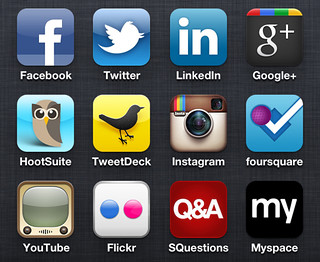The owner of a company developing a product based on the Facebook Platform has written an open letter to Mark Zuckerberg describing how Facebook, at first, encouraged him to develop his software and then tried to force him to sell or be destroyed by a competing product from Facebook. Dalton Caldwell then goes on to talk about his new quixotic quest to develop a paid alternative social network that treats users as customers rather than the product being sold to advertisers.
It sounds a little ridiculous to suggest that a little company could overtake Facebook with its 1-billion-plus users and Twitter with 500-million and Google+, which is backed by the Internet giant. On the other maybe it’s not that one small company could overtake, but many. Maybe social networks should work more like email.
The situation today is like the old days of Compuserve and AOL and Prodigy. Those of us who were around them can recall that we were on islands on the Internet, in small communities that had minimal connection to one another. I remember the day we could finally email someone at AOL from our Compuserve accounts. It was astonishing to think we could cross over the walls that separated us. We were on the Internet.
Today’s social networks are like that. Facebook and Twitter are giant islands. Sure there’s some interoperability, but it’s at the mercy of FB’s and Twitter’s and Google’s whim. If they decide to an API developer’s business is too good, they just acqui-hire or develop their own version. Think of Instagram’s purchase by Facebook or Tweetdeck’s purchase by Twitter. The big social networks are beholden more to their advertisers than to their users and so they’re more interested in protecting their revenue sources and keeping your eyeballs captured within the boundaries they define. You’re stuck inside their walled gardens.
Maybe social networks should work more like email. We would buy service from an “on-ramp” service, someone who gives us access to The Social Network, not one site but a “cloud” that isn’t under any one person or group’s control, and using common open protocols we communicate with one another. So whether I’m on Twitter and you’re on Facebook and he’s on Google+, we can talk without any funny business from the common carriers. And then each company can differentiate and attract users by offering added value services. Those who want free service can continue to be treated like a commodity on the old guard, just like those on Hotmail or Gmail get free email service at the price of being mined for demographics so that personalized ads can be served to them. Or you can pay for your service, maybe even set up your own little domain, and connect to the wider Social Network that way. And if you don’t like your provider, you switch to a new one. Just like email.
The big social networking behemoths wouldn’t go for it, of course. The status quo benefits them in the short term. But maybe if enough small upstarts worked together to create alternative, they wouldn’t have a choice.
Think it’s unlikely? Remember that AOL used to be the biggest Internet company in the world. Nothing is forever and even the mightiest can be humbled.








Wow, what a thought-provoking and enticing possibility. I agree..the walled garden gets old after a while. Thanks for sharing!